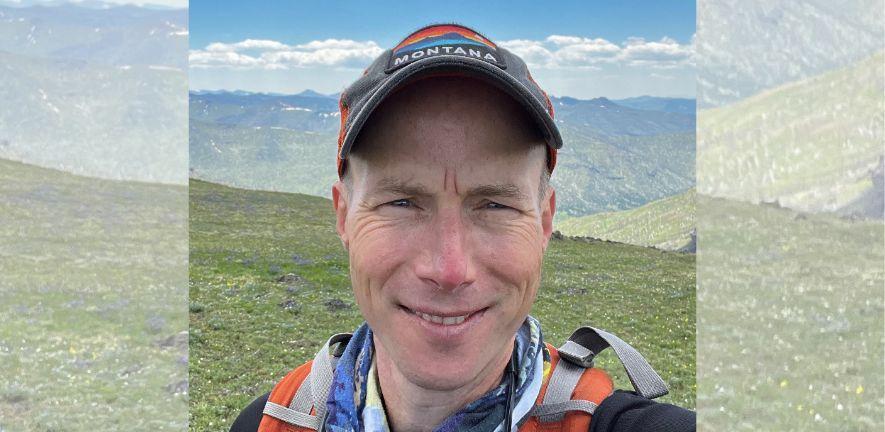
Submitted by Diane L. Lister on Thu, 15/05/2025 - 16:51
We are delighted to share the news that Professor Robert Fletcher, who is co-leader of our Conservation Science Group, has been made a Fellow of the Ecological Society of America.
ESA Fellows are elected for their exceptional achievements and outstanding contributions to their field. This year, the ESA Governing Board has confirmed eight new life-long Fellows
ESA President Stephanie Hampton said, “These individuals exemplify excellence in ecological science through their research, mentorship and service. We applaud this cohort’s accomplishments and look forward to the continued impact of their work.”
Professor Fletcher moved to Cambridge in 2024 to accept a position as the Miriam Rothschild Professor of Conservation Biology, in Zoology. In an interview ahead of this announcement, he told us about his work, his fondness for long term studies, the rewards of teaching and the part his dog Toffee plays in his ability to solve intractable problems.
Research Interests
My research interests include landscape ecology, conservation biology, ornithology and quantitative science. I have long-term field research in the Everglades (USA) and in southern Africa, where my team blends applied field ecology with quantitative modelling to address the biodiversity crisis. We have provided key information for endangered species management, developed new concepts for landscape ecology that are now being applied to conservation planning, and have developed models and related tools that are used for predicting effects of environmental change. Much of this work focuses on issues of rapid landscape change, invasive species, and human-wildlife interactions.
Long-term studies
I am very fond of long-term studies, particularly long-term experiments. The value of long-term studies for both ecology and conservation is tremendous, as it provides context for drivers of biodiversity and the effectiveness of conservation action that are not possible with ‘snapshots’ of nature.
Solving problems
I am an avid runner and I find that when I am running with my dog, Toffee, I tend to have the clearest mind and can work through scientific problems that I previously found intractable. We run together early in the morning, and it is a time where my best ideas emerge.
Teaching and mentoring
I find teaching and mentoring to be one of the most rewarding aspects of my work. I am a committed teacher and mentor, having mentored over 40 graduate students and postdocs. One key issue I have learned is that we all have strengths and weaknesses in our professional careers and that each individual has unique strengths to contribute to the scientific community. As a mentor, one of my goals is to help students identify and hone those strengths to assist them in reaching their career goals.
This text has been taken by a news item submitted by Abigail Youngman on Wed, 30/04/2025.
